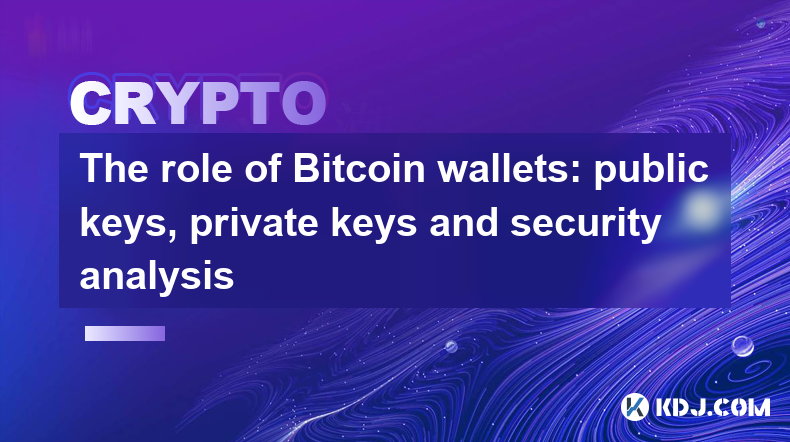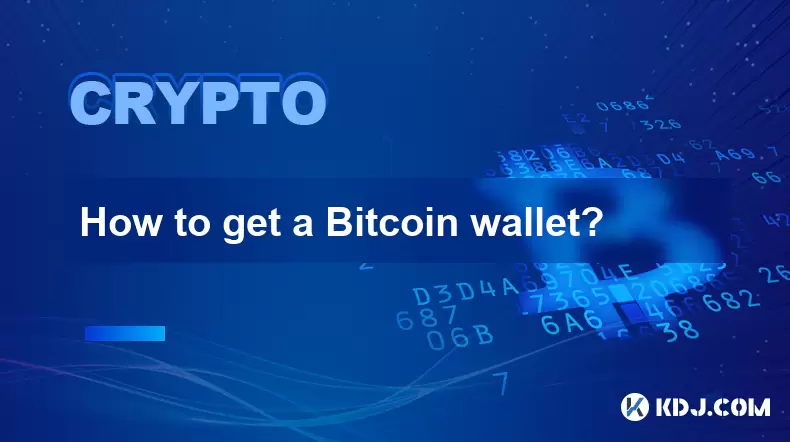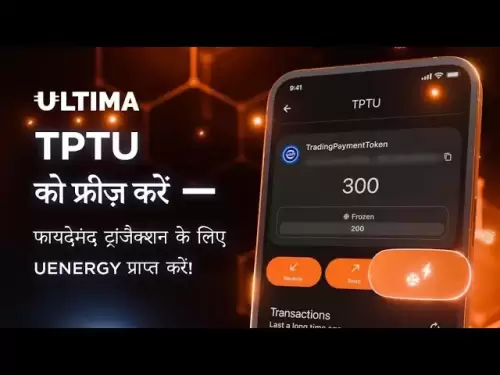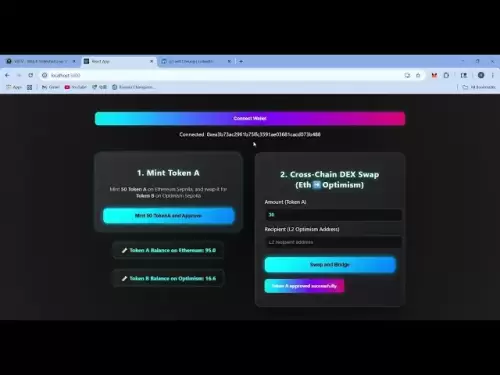-
 Bitcoin
Bitcoin $109,459.7682
2.44% -
 Ethereum
Ethereum $2,598.6052
6.29% -
 Tether USDt
Tether USDt $1.0003
0.00% -
 XRP
XRP $2.2734
3.95% -
 BNB
BNB $661.4886
1.58% -
 Solana
Solana $155.4825
4.35% -
 USDC
USDC $0.9999
-0.02% -
 TRON
TRON $0.2838
1.04% -
 Dogecoin
Dogecoin $0.1740
8.25% -
 Cardano
Cardano $0.6047
9.04% -
 Hyperliquid
Hyperliquid $40.2302
6.50% -
 Sui
Sui $2.9863
10.05% -
 Bitcoin Cash
Bitcoin Cash $509.5786
0.60% -
 Chainlink
Chainlink $13.8156
6.03% -
 UNUS SED LEO
UNUS SED LEO $9.0142
0.69% -
 Avalanche
Avalanche $19.0337
8.68% -
 Stellar
Stellar $0.2438
5.17% -
 Toncoin
Toncoin $2.9012
3.59% -
 Shiba Inu
Shiba Inu $0.0...01210
6.20% -
 Litecoin
Litecoin $90.0882
7.05% -
 Hedera
Hedera $0.1597
8.53% -
 Monero
Monero $326.3340
2.88% -
 Polkadot
Polkadot $3.6365
9.32% -
 Bitget Token
Bitget Token $4.6162
2.72% -
 Dai
Dai $1.0001
0.00% -
 Ethena USDe
Ethena USDe $1.0002
-0.01% -
 Uniswap
Uniswap $7.6403
10.47% -
 Pepe
Pepe $0.0...01060
12.03% -
 Aave
Aave $281.3664
7.56% -
 Pi
Pi $0.4992
1.76%
The role of Bitcoin wallets: public keys, private keys and security analysis
Bitcoin wallets store public and private keys, not actual Bitcoins, and securing the private key is crucial to protect your funds from theft.
Apr 09, 2025 at 03:00 am

Bitcoin wallets play a crucial role in the world of cryptocurrency, serving as the gateway to securely store, send, and receive Bitcoin. Understanding the intricacies of Bitcoin wallets, particularly the concepts of public keys, private keys, and security analysis, is essential for anyone looking to navigate the cryptocurrency landscape safely and effectively. This article delves into these critical aspects, providing a comprehensive overview of how Bitcoin wallets function and the importance of securing them.
Understanding Bitcoin Wallets
A Bitcoin wallet is essentially a software program that stores the public and private keys necessary to interact with the Bitcoin network. Unlike traditional wallets that hold physical cash, a Bitcoin wallet does not store actual Bitcoins but rather the information needed to access and manage them on the blockchain. This includes generating and storing the public and private keys, which are fundamental to the operation of Bitcoin transactions.
Public Keys and Their Role
The public key in a Bitcoin wallet is a long string of numbers and letters derived from the private key through a cryptographic process. It serves as an address on the Bitcoin network where others can send Bitcoins. Think of the public key as your bank account number; it's safe to share with others because it doesn't allow access to your funds. When someone sends you Bitcoin, they use your public key to direct the transaction to your wallet.
To generate a public key, the wallet uses the private key as an input to a one-way cryptographic function. This function ensures that it's computationally infeasible to reverse-engineer the private key from the public key, maintaining the security of your funds. The public key is then hashed to create the Bitcoin address, which is the final form used in transactions.
Private Keys and Their Importance
The private key is the cornerstone of Bitcoin wallet security. It is a secret number that allows you to spend the Bitcoins associated with your public key. The private key must be kept confidential; if someone gains access to it, they can control your Bitcoins. It's akin to the password to your bank account; losing it means losing access to your funds, and sharing it means risking theft.
Private keys are generated randomly when you create a new Bitcoin wallet. They are typically stored in the wallet software, but for enhanced security, users can opt to store them offline in what is known as a "cold storage" method. The private key is used to sign transactions, proving ownership of the Bitcoins being spent. This signature is verified by the Bitcoin network, ensuring that only the rightful owner can move the funds.
Security Analysis of Bitcoin Wallets
Securing a Bitcoin wallet involves protecting both the public and private keys, with a particular emphasis on the private key. Here are some key security measures and considerations:
Encryption: Many wallet software programs encrypt the private key with a password. This adds an additional layer of security, as even if someone gains access to your wallet file, they would need the password to decrypt the private key.
Backup and Recovery: It's crucial to have a backup of your private key or the seed phrase used to generate it. This ensures you can recover your funds if your wallet is lost or damaged. However, backups must be stored securely to prevent unauthorized access.
Cold Storage: Storing your private key offline, away from internet-connected devices, significantly reduces the risk of hacking. Hardware wallets and paper wallets are popular cold storage methods.
Multi-signature Wallets: These require multiple private keys to authorize a transaction, adding an extra layer of security. This is particularly useful for businesses or groups managing shared funds.
Regular Updates: Keeping your wallet software up to date is essential to protect against known vulnerabilities. Developers frequently release updates to address security issues.
Types of Bitcoin Wallets
There are several types of Bitcoin wallets, each with its own method of storing and securing public and private keys:
Software Wallets: These are applications that run on your computer or mobile device. They are convenient for everyday use but can be vulnerable to malware and hacking if the device is compromised.
Hardware Wallets: These are physical devices designed specifically for storing private keys offline. They offer a high level of security but can be more expensive and less convenient for frequent transactions.
Paper Wallets: These involve printing out your public and private keys on a piece of paper. They are a form of cold storage but can be susceptible to physical damage or theft.
Online Wallets: These are hosted by third-party services and accessible via the internet. They are convenient but pose a higher risk of hacking since the private keys are stored on servers that could be compromised.
Best Practices for Securing Your Bitcoin Wallet
To maximize the security of your Bitcoin wallet, consider the following best practices:
Use Strong Passwords: Choose a complex password for your wallet and change it regularly. Avoid using easily guessable information like birthdays or common words.
Enable Two-Factor Authentication (2FA): If your wallet supports it, enable 2FA to add an additional layer of security. This typically involves a code sent to your mobile device that must be entered to access your wallet.
Be Wary of Phishing: Always verify the authenticity of websites and emails before entering your wallet information. Phishing attacks are a common method used to steal private keys.
Limit Exposure: Only keep the amount of Bitcoin you need for immediate transactions in an online or software wallet. Store the majority of your funds in cold storage.
Regularly Monitor Your Wallet: Keep an eye on your wallet's transaction history to quickly detect any unauthorized activity.
Frequently Asked Questions
Q: Can I have multiple Bitcoin addresses in one wallet?
A: Yes, most Bitcoin wallets allow you to generate multiple public addresses. This can be useful for organizing your funds or maintaining privacy by using different addresses for different purposes.
Q: What happens if I lose my private key?
A: If you lose your private key and do not have a backup, you will permanently lose access to the Bitcoins associated with that key. It's crucial to keep a secure backup of your private key or seed phrase.
Q: Is it safe to store my private key on a cloud service?
A: Storing your private key on a cloud service is generally not recommended due to the risk of hacking and unauthorized access. If you must use cloud storage, ensure it is encrypted and protected by strong security measures.
Q: How can I verify the authenticity of a Bitcoin wallet?
A: To verify the authenticity of a Bitcoin wallet, download it from the official website or a trusted source. Check user reviews and ratings, and look for wallets that have been audited by reputable security firms. Always be cautious of fake websites and phishing attempts.
Disclaimer:info@kdj.com
The information provided is not trading advice. kdj.com does not assume any responsibility for any investments made based on the information provided in this article. Cryptocurrencies are highly volatile and it is highly recommended that you invest with caution after thorough research!
If you believe that the content used on this website infringes your copyright, please contact us immediately (info@kdj.com) and we will delete it promptly.
- Eurau Stablecoin: Deutsche Bank, Galaxy, and Bafin Approval Usher in New Era
- 2025-07-03 20:30:12
- Solana DEX Volume and Ranking: Riding the Wave to the Top
- 2025-07-03 21:10:20
- BONK ETF Buzz: News, Catalysts, and What's Driving the Meme Coin Mania
- 2025-07-03 21:10:20
- Stablecoin Market: JPM's Forecast vs. Trillion-Dollar Potential—Reality Check?
- 2025-07-03 21:50:12
- Kane Brown Trades Country for Comedy: A Rom-Com Debut!
- 2025-07-03 21:50:12
- Check Your Change! That 1p Coin Could Be Worth £200k!
- 2025-07-03 21:20:17
Related knowledge

What is a Bitcoin Improvement Proposal (BIP)?
Jul 03,2025 at 11:28am
Understanding the Basics of Bitcoin Improvement Proposals (BIPs)A Bitcoin Improvement Proposal (BIP) is a formal document used to suggest changes, enhancements, or modifications to the Bitcoin protocol. These proposals serve as the primary mechanism through which developers and contributors communicate new ideas for improving the functionality, security...

How to earn interest on my Bitcoin?
Jul 03,2025 at 10:49am
Understanding Bitcoin Interest and Its MechanismsEarning interest on your Bitcoin involves leveraging financial tools or platforms that allow you to lend, stake, or deposit your BTC in exchange for regular returns. Unlike traditional banking where fiat currencies earn interest through savings accounts, Bitcoin’s decentralized nature requires alternative...

What is a Bitcoin paper wallet?
Jul 03,2025 at 08:21pm
Understanding the Concept of a Bitcoin Paper WalletA Bitcoin paper wallet is a physical document that contains all the necessary information to access and manage a specific amount of Bitcoin. Unlike digital wallets stored on software or hardware devices, a paper wallet is typically printed on paper or another durable material. It includes both the publi...

What is the Bitcoin stock-to-flow model?
Jul 03,2025 at 07:49am
Understanding the Bitcoin Stock-to-Flow ModelThe Bitcoin stock-to-flow (S2F) model is a valuation framework that attempts to predict the future price of Bitcoin based on its scarcity. This model, popularized by an anonymous analyst known as PlanB, uses the concept of scarcity from traditional commodities like gold and applies it to Bitcoin. The central ...

What happens when all Bitcoin are mined?
Jul 03,2025 at 05:35pm
Understanding Bitcoin Mining and Its CapBitcoin mining is the process through which new bitcoins are introduced into circulation. Miners use powerful computers to solve complex cryptographic puzzles, validating transactions and adding them to the blockchain. Each time a block is successfully mined, a set number of bitcoins are awarded to the miner. Howe...

How to get a Bitcoin wallet?
Jul 03,2025 at 10:56am
What Is a Bitcoin Wallet and Why You Need OneA Bitcoin wallet is a digital tool that allows users to store, send, and receive Bitcoin (BTC). Unlike traditional wallets that hold physical currency, a Bitcoin wallet doesn’t actually store the cryptocurrency itself. Instead, it stores the private keys that grant access to your Bitcoin on the blockchain. Wi...

What is a Bitcoin Improvement Proposal (BIP)?
Jul 03,2025 at 11:28am
Understanding the Basics of Bitcoin Improvement Proposals (BIPs)A Bitcoin Improvement Proposal (BIP) is a formal document used to suggest changes, enhancements, or modifications to the Bitcoin protocol. These proposals serve as the primary mechanism through which developers and contributors communicate new ideas for improving the functionality, security...

How to earn interest on my Bitcoin?
Jul 03,2025 at 10:49am
Understanding Bitcoin Interest and Its MechanismsEarning interest on your Bitcoin involves leveraging financial tools or platforms that allow you to lend, stake, or deposit your BTC in exchange for regular returns. Unlike traditional banking where fiat currencies earn interest through savings accounts, Bitcoin’s decentralized nature requires alternative...

What is a Bitcoin paper wallet?
Jul 03,2025 at 08:21pm
Understanding the Concept of a Bitcoin Paper WalletA Bitcoin paper wallet is a physical document that contains all the necessary information to access and manage a specific amount of Bitcoin. Unlike digital wallets stored on software or hardware devices, a paper wallet is typically printed on paper or another durable material. It includes both the publi...

What is the Bitcoin stock-to-flow model?
Jul 03,2025 at 07:49am
Understanding the Bitcoin Stock-to-Flow ModelThe Bitcoin stock-to-flow (S2F) model is a valuation framework that attempts to predict the future price of Bitcoin based on its scarcity. This model, popularized by an anonymous analyst known as PlanB, uses the concept of scarcity from traditional commodities like gold and applies it to Bitcoin. The central ...

What happens when all Bitcoin are mined?
Jul 03,2025 at 05:35pm
Understanding Bitcoin Mining and Its CapBitcoin mining is the process through which new bitcoins are introduced into circulation. Miners use powerful computers to solve complex cryptographic puzzles, validating transactions and adding them to the blockchain. Each time a block is successfully mined, a set number of bitcoins are awarded to the miner. Howe...

How to get a Bitcoin wallet?
Jul 03,2025 at 10:56am
What Is a Bitcoin Wallet and Why You Need OneA Bitcoin wallet is a digital tool that allows users to store, send, and receive Bitcoin (BTC). Unlike traditional wallets that hold physical currency, a Bitcoin wallet doesn’t actually store the cryptocurrency itself. Instead, it stores the private keys that grant access to your Bitcoin on the blockchain. Wi...
See all articles

























































































